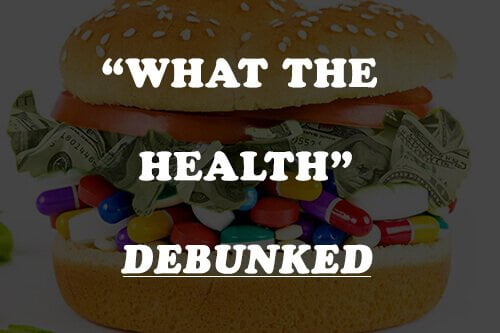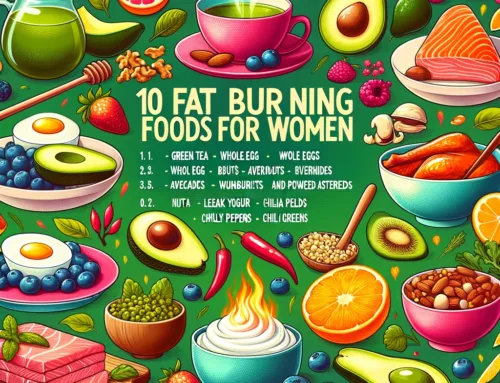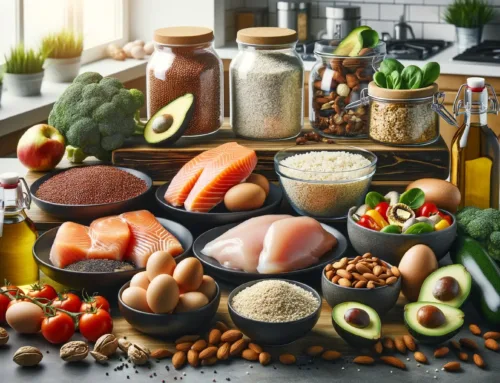
As a Toronto’s registered dietitian with Masters in health sciences, watching What the Health made me cringe, cry and then cringe harder once more. The half-truths and misrepresentation of scientific evidence this documentary presents are mind boggling and today I am addressing just a few of them.
I’m all for watching the next big documentary on Netflix, but within the first few minutes of starting “What the Health” I could not take it and stopped it 5 minutes in.
It was only upon being requested to give a review of it that I made myself sit through it, texting my fellow colleagues out of frustration the entire time.
Do not get me wrong, I have many vegan and vegetarian clients and advocate for integrating plant-based foods in your diet.
It’s the fact that this documentary takes research WAY out of context, and skews information with misleading biases that gets me going. As an evidence-based practitioner, I am all about the facts, so let’s break this down for you.
Meat Causes Obesity?
One of the overarching take home messages is that all meat and animal products cause obesity, cancer, diabetes, heart disease and all-cause mortality.
They shift from putting any focus on sugar (or inactivity, or any other cocktail of foods), and put the blame exclusively on meat. I can tell you that there is no high quality systematic review that has studied all of these variables at once that concluded with this claim.
None.
Nutrition research is notoriously hard to do because it’s impossible to isolate a single food from someone’s diet and see its effect, just like it’s impossible to isolate meat as the culprit of disease when there are a variety of other factors at play.
It’s also incorrect, as we now know that an excess of sugar in the diet also may contribute to a wide range of chronic diseases. But alas, absolving sugar and demonizing meat by taking bits of the research that confirm a theory is the overarching theme of this film.
Cherry picking facts that work to support your claim is NOT telling the truth.
Discussing One Thing and Showing Another
Right from the get go, there are a lot of issues with the film talking about food. The film had a lot of discrepancies where they would be discussing one thing and showing something else.
For example, the words were about the link between processed meats and cancer, but on the screen, we are shown steaks sizzling on a grill. Not all red meat is processed, but the film makes it seem like it is.
Later on in the film, when putting down chicken consumption, What the Health talks about chicken while showing KFC.
This insinuates that chicken you cook at home is the same as that that has been dredged in a million chemicals, frozen, and then deep fried. Not the same.
Scare Tactics
I went through school for seven years and have been working in the health role for many years now working with women whose goal is to eat healthy. Long enough that when a term like “dead meat bacterial toxins” comes up I can be skeptical.
A scientific term? More like fearmongering.
Not Telling The Full Story
An omission is another form of blatant lying and another way of misrepresenting the research.
Examples of significant omissions in this film:
- The fact that nitrates are a carcinogenic property of processed meats. You can now buy uncured/nitrate free processed meat.
- What the Health mentions that animal protein causing inflammatory chemicals leading to the stiffening of the arteries. Eating food is inflammatory by nature, and the body produces inflammation with everything we eat. Inflammation is the process of determining which foods are harmful and which are not. Some people, produce higher levels of inflammatory chemicals to certain foods.
- What the Health mentions that charring meat increases cancer risk and that these come from meat. Charring is in and of itself is both delicious and carcinogenic. There are steps you can take to lower the production of these and other mentioned unhealthy chemicals on all foods, not just fruits and veggies. Also, a healthy gut microbiome will metabolize these chemicals into non-harmful substances. If your gut isn’t healthy, that’s a whole separate topic we need to discuss.
- According to What the Health, dairy increases the risk of death in those that have had estrogen dependent cancer but fails to mention that in the same study low-fat dairy was not related to an increased risk, rendering the omission irresponsible.

The Vegan Diet Heals All?
Wanting to touch on the “vegan diets cure all” approach at the end. The man lost 29 pounds and got off all his medication in just a few short weeks, that’s great!
Here is the thing though, you can’t prove that the vegan diet was the magic bullet. Weight loss (if needed) in and of itself is one of the most efficient ways to improve health.
My question: what was his diet like before?
If he was treating himself to a super sized fast food meal 3-4 times a day, then ANY change would have helped. Vegan diets can be as healthy as non vegan ones, at the end of the day, it all comes down to the quality of foods that you eat, their quantities and your preference.
If you are feeling lost about which diet to follow to stay healthy, don’t worry many women feel the same way. Book a free consultation with me and I will help you put together a diet plan that works for you.



